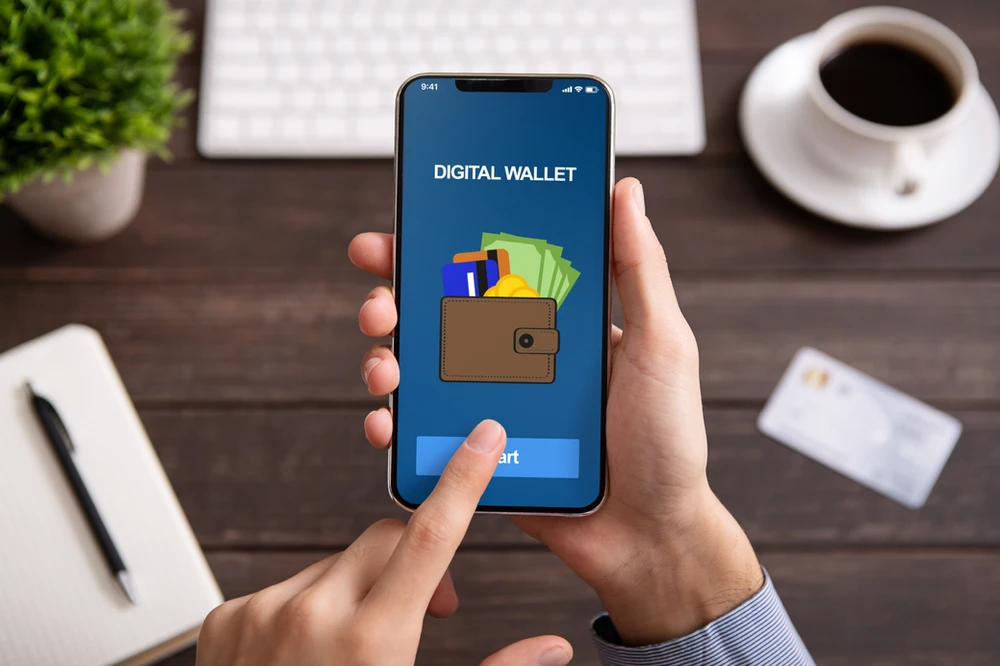Lesson series
Crypto Debunked
We will help you unlock your inner potential so you can excel in your professional field
Write your awesome label here.
Crypto Debunked Learning Modules
Introduction to Cryptocurrency

Cryptocurrency, often known as crypto-currency or crypto, refers to any sort of digital or virtual currency that uses encryption to protect transactions. Cryptocurrencies do not have a central issuing or governing organization, instead relying on a decentralized system to record transactions and create new units.
Technically, a cryptocurrency is an encrypted data string that represents a unit of currency. A blockchain, a peer-to-peer network that also serves as a secure record of transactions such as buying, selling, and transferring, monitors and manages it. Unlike traditional currencies, cryptocurrencies are decentralized, which means they are not issued by governments or other financial institutions.
Bitcoin was the 1st cryptocurrency and remains the most well-known to this day. The majority of the interest in cryptocurrencies is speculative, with speculators periodically driving prices upward.
Bitcoin, Ether, Litecoin, and Tether are examples of popular cryptocurrencies.
Technically, a cryptocurrency is an encrypted data string that represents a unit of currency. A blockchain, a peer-to-peer network that also serves as a secure record of transactions such as buying, selling, and transferring, monitors and manages it. Unlike traditional currencies, cryptocurrencies are decentralized, which means they are not issued by governments or other financial institutions.
Bitcoin was the 1st cryptocurrency and remains the most well-known to this day. The majority of the interest in cryptocurrencies is speculative, with speculators periodically driving prices upward.
Bitcoin, Ether, Litecoin, and Tether are examples of popular cryptocurrencies.
Blockchain Technology

You would learn about the underlying technology behind cryptocurrency - the blockchain. This would include understanding the concept of blocks, mining, and the different types of blockchain networks.
Blockchain is a data storage technology that makes it difficult or impossible to change, hack, or manipulate data.
A blockchain is a network of computer systems that duplicates and distributes a distributed digital ledger of transactions. Each block in the chain contains a number of transactions and each time a new transaction takes place, it is recorded in the ledger of each participant. DLT (Distributed Ledger Technology) is a decentralized database that is administered by a group of individuals.
Blockchain is a distributed ledger technology in which transactions are recorded using a hash, a non-changeable cryptographic signature.
This means that if one block in a chain is modified, it will affect the entire blocks of the chain. To bring a blockchain system down, hackers would have to change every block in the chain, across all distributed versions.
Blockchains like Bitcoin and Ethereum grow in size as more blocks are added, dramatically increasing the security of the ledger.
Blockchain is a data storage technology that makes it difficult or impossible to change, hack, or manipulate data.
A blockchain is a network of computer systems that duplicates and distributes a distributed digital ledger of transactions. Each block in the chain contains a number of transactions and each time a new transaction takes place, it is recorded in the ledger of each participant. DLT (Distributed Ledger Technology) is a decentralized database that is administered by a group of individuals.
Blockchain is a distributed ledger technology in which transactions are recorded using a hash, a non-changeable cryptographic signature.
This means that if one block in a chain is modified, it will affect the entire blocks of the chain. To bring a blockchain system down, hackers would have to change every block in the chain, across all distributed versions.
Blockchains like Bitcoin and Ethereum grow in size as more blocks are added, dramatically increasing the security of the ledger.
Cryptography and Security

This section would cover the use of cryptography in blockchain technology and how it is used to ensure the security of transactions. You would learn about the different types of encryption used in blockchain technology and how they are used to protect the identity of users.
The goal of cryptography is to ensure that only the intended recipients of a message or transmission can decipher and utilize the data contained inside it. Thus, keeping sensitive data safe from prying eyes. Crypt- means "hidden" and graph- means "writing," therefore cryptography is a concealed writing system. Messages in Cryptography are converted in ways that make decoding them difficult using mathematical ideas and a set of rule-based computations known as algorithms. The production of cryptographic keys, digital signatures, and verification using these algorithms are all vital to the security of private information, online activities, and financial transactions such as credit card and debit card purchases.
Techniques used For Cryptography
The term "cryptography" has become synonymous with "encryption" in the modern era of computers because of the practice of transforming plaintext into a form that can only be understood by the intended recipient. Decryption refers to the process through which encrypted information is returned to its original, unencrypted form.
The goal of cryptography is to ensure that only the intended recipients of a message or transmission can decipher and utilize the data contained inside it. Thus, keeping sensitive data safe from prying eyes. Crypt- means "hidden" and graph- means "writing," therefore cryptography is a concealed writing system. Messages in Cryptography are converted in ways that make decoding them difficult using mathematical ideas and a set of rule-based computations known as algorithms. The production of cryptographic keys, digital signatures, and verification using these algorithms are all vital to the security of private information, online activities, and financial transactions such as credit card and debit card purchases.
Techniques used For Cryptography
The term "cryptography" has become synonymous with "encryption" in the modern era of computers because of the practice of transforming plaintext into a form that can only be understood by the intended recipient. Decryption refers to the process through which encrypted information is returned to its original, unencrypted form.
Smart Contracts

A smart contract is computer software that, once set into motion, fulfills the obligations of a contract or agreement on its own. Once a transaction is finalized, it can't be undone and can't be undone by anybody else.
Smart contracts eliminate the need for a central authority, legal system, or external enforcement mechanism by facilitating trustworthy transactions and agreements between unrelated, anonymous participants. Although blockchain technology is most often associated with supporting Bitcoin, its applications have expanded well beyond that.
Smart contracts eliminate the need for a central authority, legal system, or external enforcement mechanism by facilitating trustworthy transactions and agreements between unrelated, anonymous participants. Although blockchain technology is most often associated with supporting Bitcoin, its applications have expanded well beyond that.
Different Types of Cryptocurrency

You would learn about the different types of cryptocurrency available, including Bitcoin, Ethereum, Litecoin, and Ripple. You would also learn about the different use cases and applications of each type of cryptocurrency.
While Bitcoin was the first publicly traded cryptocurrency, it is far from the only one, and there are other variants. We may classify cryptocurrencies into at least four varieties based on their formulation or code design, application or use case, and other criteria.
Coins, payment tokens or altcoins, security tokens, non-fungible tokens or NFTs, decentralized finance tokens, utility tokens, and other types of tokens are possible.
This course explains the many forms of cryptocurrencies and tokens. We also provide information on how to differentiate cryptocurrencies, how to utilize them, and full samples of the numerous sorts.
Although the phrase "cryptocurrencies" refers to all sorts of cryptocurrencies or digital currencies, it is sometimes used interchangeably with "coins." They are widely regarded as such, despite the fact that, with the exception of Bitcoin, many of them do not function as a unit of account, store of value, or medium of exchange.
Coins, on the other hand, may be distinguished from altcoins. The term altcoins refers to cryptocurrencies other than Bitcoin that are thought to be an alternative to Bitcoin.
While Bitcoin was the first publicly traded cryptocurrency, it is far from the only one, and there are other variants. We may classify cryptocurrencies into at least four varieties based on their formulation or code design, application or use case, and other criteria.
Coins, payment tokens or altcoins, security tokens, non-fungible tokens or NFTs, decentralized finance tokens, utility tokens, and other types of tokens are possible.
This course explains the many forms of cryptocurrencies and tokens. We also provide information on how to differentiate cryptocurrencies, how to utilize them, and full samples of the numerous sorts.
Although the phrase "cryptocurrencies" refers to all sorts of cryptocurrencies or digital currencies, it is sometimes used interchangeably with "coins." They are widely regarded as such, despite the fact that, with the exception of Bitcoin, many of them do not function as a unit of account, store of value, or medium of exchange.
Coins, on the other hand, may be distinguished from altcoins. The term altcoins refers to cryptocurrencies other than Bitcoin that are thought to be an alternative to Bitcoin.
Trading and Investing in Cryptocurrency

You would learn about the different ways to buy and sell cryptocurrency, including exchanges and peer-to-peer platforms. You would also learn about the different strategies for investing in cryptocurrency and the risks involved.
Cryptocurrency Regulations and Legal Implications

You would learn about the different laws and regulations surrounding cryptocurrency in different countries, and the potential legal implications of using and trading in cryptocurrency.
Future of Cryptocurrency and Blockchain

You would learn about the potential future developments in the field of cryptocurrency and blockchain technology, including the use of blockchain in various industries such as finance, logistics, and healthcare.


